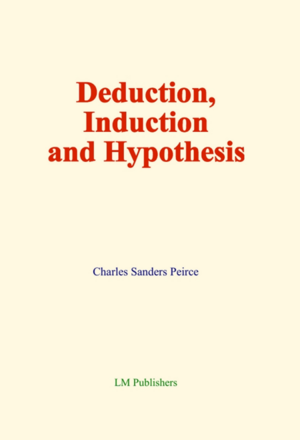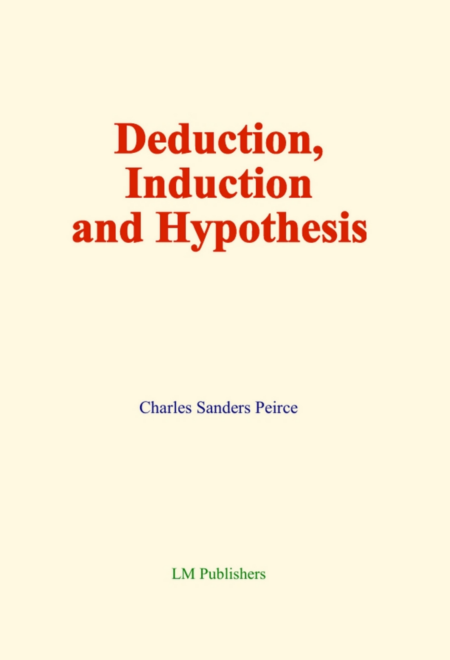
- Afhalen na 1 uur in een winkel met voorraad
- Gratis thuislevering in België vanaf € 30
- Ruim aanbod met 7 miljoen producten
- Afhalen na 1 uur in een winkel met voorraad
- Gratis thuislevering in België vanaf € 30
- Ruim aanbod met 7 miljoen producten
Deduction, Induction and Hypothesis E-BOOK
The Logic of Science
Charles Sanders PeirceOmschrijving
All our reasonings are of two kinds: 1. Explicative, analytic, or deductive; 2. Amplifiative, synthetic, or (loosely speaking) inductive. In explicative reasoning, certain facts are first laid down in the premises. These facts are, in every case, an inexhaustible multitude, but they may often be summed up in one simple proposition by means of some regularity which runs through them all. Thus, take the proposition that Socrates was a man; this implies (to go no further) that during every fraction of a second of his whole life (or, if you please, during the greater part of them) he was a man. He did not at one instant appear as a tree and at another as a dog; he did not flow into water, or appear in two places at once; you could not put your finger through him as if he were an optical image, etc. Now, the facts being thus laid down, some order among some of them, not particularly made use of for the purpose of stating them, may perhaps be discovered; and this will enable us to throw part or all of them into a new statement, the possibility of which might have escaped attention...
Specificaties
Betrokkenen
- Auteur(s):
- Uitgeverij:
Inhoud
- Taal:
- Engels
Eigenschappen
- Productcode (EAN):
- 9782384695362
- Verschijningsdatum:
- 22/10/2025
- Uitvoering:
- E-book
- Beveiligd met:
- Digital watermarking
- Formaat:
- ePub

Alleen bij Standaard Boekhandel
Beoordelingen
We publiceren alleen reviews die voldoen aan de voorwaarden voor reviews. Bekijk onze voorwaarden voor reviews.







